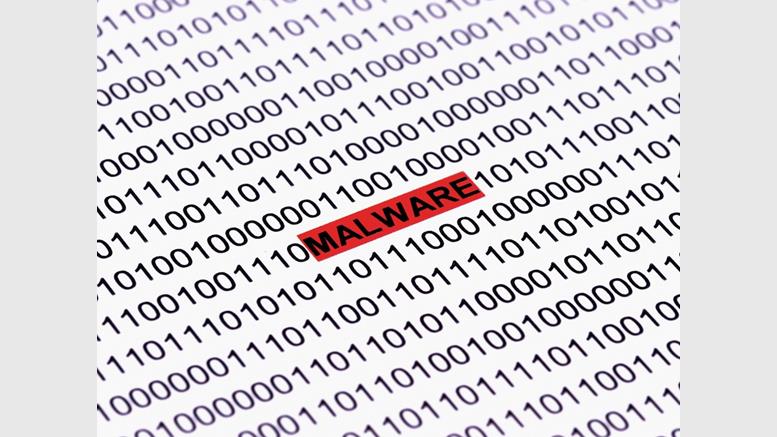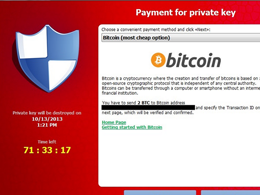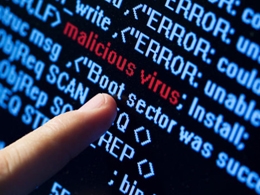
CryptoLocker malware demands bitcoin ransom
A piece of malware is currently terrorising computer users by encrypting their data and charging a ransom - in fiat currency or bitcoins - to decrypt the information. Called CryptoLocker, the ransom malware is contained within phishing emails, so it infects a users computer when they open an attachment in one of these messages. Yuval Ben-Itzhak, CTO at security software company AVG, said: "Ransom malware has been around in different variations since the early 1990's." He went on to explain that a victim of the malware would typically receive an email that pretends to be from a well-known....
Related News
Victims of malware, such as bitcoin ransomware Cryptolocker, should just pay off the perpetrators if they want to see their data again, an FBI agent has advised. According to Security Ledger, Acting Special Agent Joseph Bonavolonta, who oversees the bureau's Boston office, told C-level executives at Wednesday's Cyber Security Summit they'd be better off stumping up the ransom. According to an FBI report from June, this sum can be anywhere from $200 to $10,000. Bonavolonta said: "The amount of money made by these criminals is enormous and that's because the overwhelming majority of....
Tewksbury Police Department has reportedly paid a $500 Bitcoin ransom to hackers who had infected the department's files with a ransomware program called CryptoLocker. The malware program bogged down the police systems for 5 days after which the department finally decided to pay up. Chief of Police Timothy Sheehan said, "Nobody wants to negotiate with terrorists. Nobody wants to pay terrorists. We did everything we possibly could." Timothy went on to add that, "It was an eye-opening experience, I can tell you right now. It made you feel that you lost control of everything. Paying the....
CryptoLocker, the notorious online malware estimated to have stolen $27m, has been temporarily disabled, according to international law enforcement agencies including the UK National Crime Agency (NCA), the FBI and Europol. First surfacing in late 2013, CrypoLocker's ransom malware hijacked more than 234,000 computers through phishing emails, then offered users the ability to pay to decrypt their device for $300 in USD, EUR or BTC. Symantec researchers report that law enforcement agencies have now effectively disabled key nodes of the GOZeuS network (also known as P2PZeuS and Gameover....
A new Cryptesla ransomware is making the rounds throughout the web locking up users files and demanding Bitcoin. Recently the UK news publication The Independent was allegedly compromised by the malicious malware. Trend Micro Blog said that the Cryptesla 2.2.0 had infected the media site by focusing in on its blog page and possibly threatening readers....
Just when you think that you have seen it all, a ransomware demands money for charity by encrypting all files on the user's computer.' Doing something bad with good intentions don’t make it right! Maybe no one told this to the cybercriminals behind this new Bitcoin ransomware. CryptMix, the new ransomware doing rounds on the internet extorts money out of its victims, but forwards the ransom for charity. Like any other ransomware, CryptMix encrypts the files on the victim’s computer making it unusable. According to Heimdal Security, a well-known anti-malware and cyber security software....





